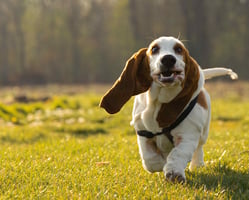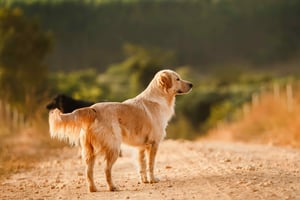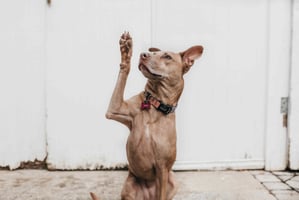Crate training your pup overnight can be a daunting task, but with the right training techniques,...
Happy Go Lucky Dog Training: A Comprehensive Guide
Training a happy go lucky dog can be a rewarding experience for both you and your pup. This guide will provide you with all the tips, tricks and techniques you need to know to ensure your pup lives a happy and fulfilled life. We will cover topics such as obedience training, socialisation, exercise, nutrition and more. Read on to learn all you need to know about happy go lucky dog training.
Obedience Training
Obedience training is the foundation of happy go lucky dog training. It teaches your pup basic commands such as ‘sit’, ‘stay’, and ‘come’, as well as how to respond to cues such as hand signals and verbal commands. Obedience training should be started as soon as possible, as it will help to build a strong bond between you and your pup.
When it comes to obedience training, consistency and patience are key. Use positive reinforcement to reward your pup for good behaviour, and be sure to keep training sessions short and fun. Be sure to reward your pup with treats or praise for good behaviour, and be consistent with your commands and expectations.
It is also important to remember that obedience training takes time. Don’t expect your pup to learn everything overnight. With patience and consistency, your pup will eventually learn the commands and behaviours you are teaching them.
Socialisation
Socialisation is an important part of happy go lucky dog training. Socialisation helps your pup become comfortable and confident in social situations, and teaches them how to interact with other dogs and people in a safe and friendly manner.
Socialisation should begin as early as possible, and should be done in a controlled and safe environment. This could include puppy classes, dog parks or meet-ups, or even just taking your pup for walks in the park. It is important to remember to always be in control of the situation, and to supervise your pup at all times.
When socialising your pup, it is important to keep in mind that not all dogs are comfortable in all situations. Pay attention to your pup’s body language, and if they seem uncomfortable or scared, remove them from the situation. Socialisation should always be a positive experience for your pup.
Exercise
Exercise is an important part of happy go lucky dog training. Exercise helps to keep your pup healthy and happy, and provides them with an outlet for their energy. It is important to ensure that your pup is getting enough exercise, and that the exercise is appropriate for their age and breed.
Daily walks are a great way to ensure your pup is getting enough exercise. Start with short walks and gradually increase the length as your pup becomes more comfortable. You can also take your pup to the park to play fetch, or to the beach for a swim.
It is also important to remember that exercise is not only physical, but mental as well. Providing your pup with mental stimulation through puzzle toys and games can help to keep them stimulated and engaged.
Nutrition
Nutrition is an important part of happy go lucky dog training. Ensuring your pup is getting the right nutrition is key to ensuring they stay healthy and happy.
When it comes to feeding your pup, it is important to ensure that they are getting a balanced diet that is appropriate for their age and breed. You can consult your vet for advice on the best food for your pup. It is also important to remember to always provide your pup with fresh water.
It is also important to remember that treats are a great way to reward your pup for good behaviour. However, treats should not make up more than 10% of your pup’s daily calorie intake.
Conclusion
Happy go lucky dog training is an important part of ensuring your pup is living a happy and fulfilled life. By following the tips and techniques outlined in this guide, you can ensure your pup is getting the best possible training and care.
Remember, training your pup takes time, patience and consistency. With patience and consistency, you can ensure your pup is living a happy and fulfilled life.



